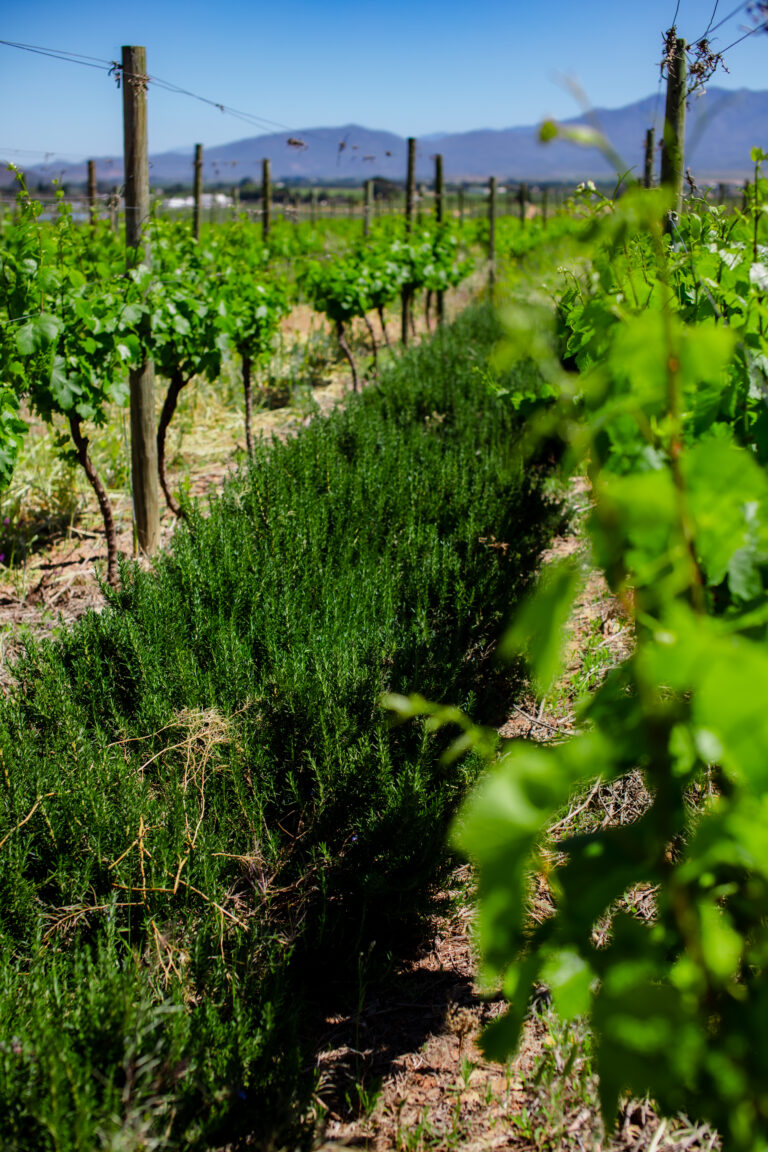De Wetshof Estate
Sustainability
De Wetshof is one of 50 WWF Conservation Champions, a status accorded by the World Wide Fund for Nature to wine farms that have committed to biodiversity-friendly and regenerative farming practices, conserving their natural areas and continually improving their water and energy efficiencies. In 2021 De Wetshof received the WWF Conservation Pioneer Award for its exemplary efforts in conservation, and sustainable wine farming.
As third-generation owners responsible for the running of the farm, Johann and Peter de Wet are not only the custodians of the nature around us but believe their success as winemakers depends on it. They know that the best wine is produced when you farm holistic ally in harmony with nature.
Large parts of De Wetshof have been set aside solely to protect the local fauna and flora, particularly alongside the river-banks and in the deep ravines that carve their way into the Cape Fold Mountains. Here you can still find grysbok, duikers, hares, porcupines, snakes, mongooses, meerkats, otters and caracal roaming free. The Robertson Bird Club identified 92 species in one day, from the tiny malachite kingfisher to the majestic African fish eagle.
To ensure that wildlife remains undisturbed, we keep the building of roads and tracks through the property to the minimum and all our fences are regularly maintained and repaired.
For several years now, De Wetshof has also had a rigorous programme of removing invasive alien vegetation and replanting indigenous trees, especially close to the river. This not only helps to restore natural vegetation but also helps with water conservation.

Here at De Wetshof the whole team works hard to inculcate love and respect for nature within their own farm community. One way in which we do this is through the De Wetshof farm crèche where the children of our staff are actively encouraged to learn about the natural world around them.
The children have their own conservation club where they are taught about the unique plant and animal species found here, and they take regular field trips away from the farm. The belief is that these early lessons will set the children up to become responsible adults who will pass these values on to future generations.
Another eye-catching initiative is evident on the steep slopes of De Wetshof where young Chardonnay vineyards have purple vygies (a kind of flowering daisy) planted as a cover crop between them.
Cape wine farmers might just have the most unique cover crops in the world with both the Cape floristic region and succulent Karoo biomes on our doorstep. These local plants not only help to maintain soil health but reduce pests within the vineyard, which in turn reduces the need to use insecticides. It’s a win-win for nature and people.
For more information on the WWF Conservation Champions, see https://www.wwf.org.za/conservation_champions_list/
